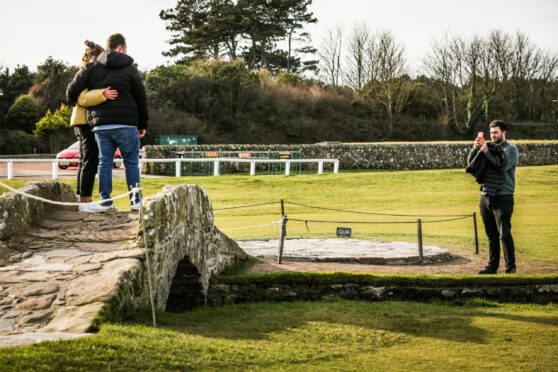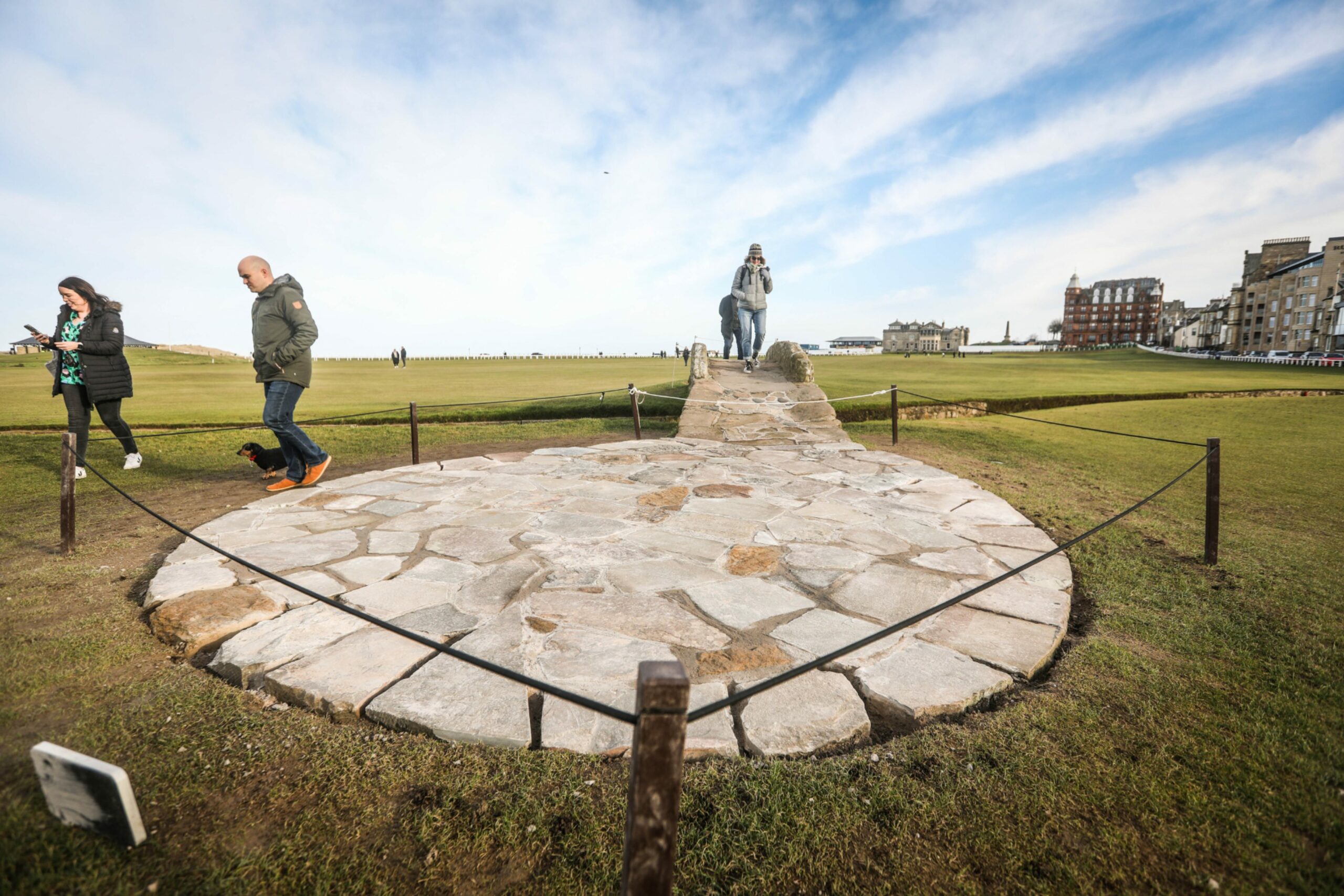A couple of summers ago, I was idly considering the possible obsolescence of the 18th hole at the Old Course at St Andrews in this column.
Just 361 yards long, it has few defences to the modern player. There’s a large hollow in front of the green. The putting surface that can be difficult to read even from short distances. Out of bounds up the right.
There’s also the imposing R&A clubhouse and Hamilton Hall (or ‘Grand’ as they want us to call it these days) and the various edifices on Golf Place that loom intimidatingly over the scene for the thousands of amateurs who play golf’s most loved and treasured venue.
But none of these quicken the blood of the seriously good player.
The green is driven habitually now, not just by the bigger hitters. But unlike much of the rest of the Old Course, I pondered in 2020, there’s not much room to do anything with the 18th.
“Altering any of the hole’s traditional specifications would absolutely be a sacrilegious step too far,” I wrote.
Well, perhaps not.
Something had to be done there
St Andrews golf chiefs respond to furore after ‘patio’ style paving added to iconic Swilcan Bridge https://t.co/qyXtAfDAND pic.twitter.com/h3tLmg1p6q
— The Courier Sport (@thecouriersport) February 6, 2023
The new addition to the 18th at the Swilcan Bridge exploded on Golf Twitter over the weekend, and quickly went viral in the game.
Seeking to solve a long-standing issue with the surfaces approaching what is clearly the most traversed piece of land in all of golf, St Andrews Links Trust started construction on a stone “patio” at the south end of the ancient bridge.
However, clearly this was not your usual cosmetic golf course maintenance. The Swilcan Bridge appears in thousands of “bucket list” photographs. No-one crossing it for the first time just walks over it.
Hell, even the old by-line picture of this column had your correspondent, ungreyed and considerably trimmer, standing on the bridge.
Like me that particular rainy day, a massive proportion of people who walk up and pose there aren’t even playing golf. It’s golf’s Eiffel Tower, Big Ben, Times Square.
I wasn’t fond of the new appendage either. In the end, the Links Trust backtracked after a swathe of protest and will remove the new stonework.
I don’t know who or what or where the Trust got the design from. I do know they’ll have done nothing without the approval of the Royal and Ancient Golf Club, because that’s how things at the Old Course work.
The Links have tried just about everything to protect the surface there – constantly replacing the sod, artificial turf, plastic inserts to bolster the ailing grass. They’re going to re-sod it again, and think about it some more.
Nothing works for long. Too many people walk that bit of ground, every day of the year.
Reaction borders on hysterical
So something had to be done. But the solution prompted a reaction from inside and outside golf that bordered on hysterical.
For context, here’s how the approach to the Swilcan Bridge looked in October 2022. pic.twitter.com/EWnrpwTg5v
— Michael McEwan (@MMcEwanGolf) February 5, 2023
I’m going to focus on the reaction within golf, because that’s my thing. Really, of all that’s been done in ‘improvements’ to the Old Course in the past 20 years – and it’s been a lot – this was, by some distance, the least significant.
The Swilcan Burn is not in play on the 18th, at least for halfway competent golfers. The Bridge is now just a means to cross the burn as well as a photo opportunity.
Of course it has historic value way beyond this, but that’s been romanticised. You’ll hear some suggest that Scottish knights crossed the Bridge on their way to boats to take them to the crusades in medieval times.
It was really just townsfolk, shepherds and the rabbit farmers who used it with the golfers.
The Bridge matters to golf because it’s ‘iconic’ (ugh). Only what matters to golf a whole lot more is the entirety of the OC and its primary place in our game.
The OC is, at the same time, the most treasured ancient relic of golf but one still in everyday and intensive use. Even up to the highest levels of the game, like The 150th Open. This is unique in all of sport.
In the last 20 years, the course has been stretched several times to cope with the increasing distances the golf ball is hit, in an attempt to keep it ‘relevant’ to elite competitive play.
Tees have been taken back into neighbouring properties. The 17th championship tee is actually placed, technically, out of bounds.
More recently, a swathe of more subtle changes were made to ‘toughen’ the course. The 7th and 11th green complex was widened. New bunkers were installed at the 2nd, more mounding in various areas.
More subtlety is required
Happy Birthday @tigerwoods
Twice he has been Champion Golfer of the Year here at St Andrews Links, including his first Open win in 2000
This summer he gave us this emotional moment as he crossed the Swilcan Bridge on Friday #TheHomeofGolf pic.twitter.com/uU5xfNQJrC
— St Andrews Links (@TheHomeofGolf) December 30, 2022
There was considerable negative reaction to these changes. A lot of talk of ‘defacing the Mona Lisa’.
But none of these changes, which had an obvious effect on how the OC is played, prompted anything like the reaction to the few stones installed last week.
I’m not against changes to the OC. During his 20 years as greenkeeping superintendent, the late Walter Woods, in conjunction with then R&A secretary Keith Mackenzie, probably made more alterations to the course than anyone since Old Tom Morris.
But they were so subtle no-one saw the join. Of course there was no social media and intense scrutiny then.
I really hope they find a better solution for this – necessary – course maintenance. There’s surely something else that fits the scene better.
But seriously. Nobody framing their bucket list picture on the Bridge includes the approach area anyway.
My point is; there are far more significant things that have and will happen to the Old Course than this. Perhaps they should get the same intensive scrutiny, especially from golfers.




Conversation